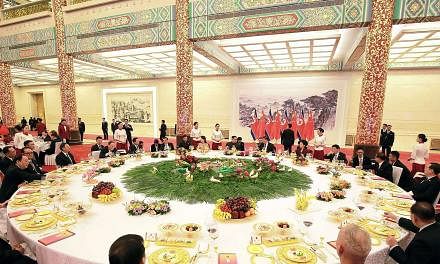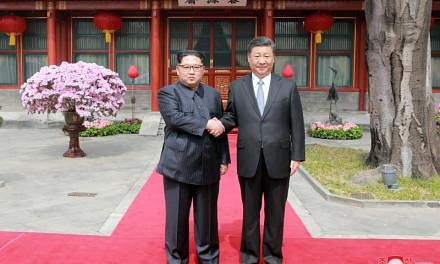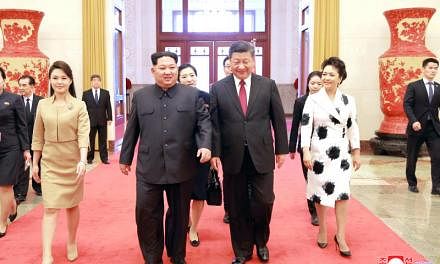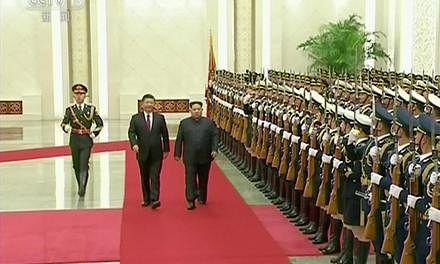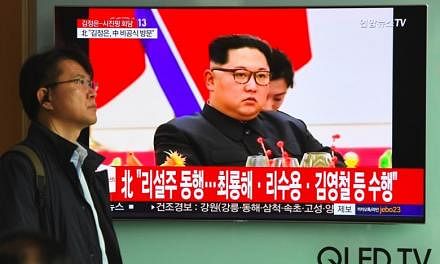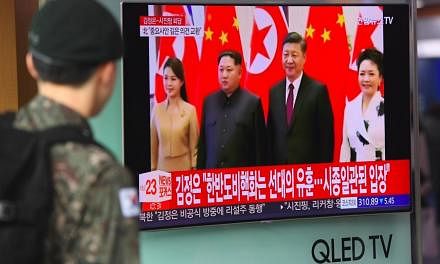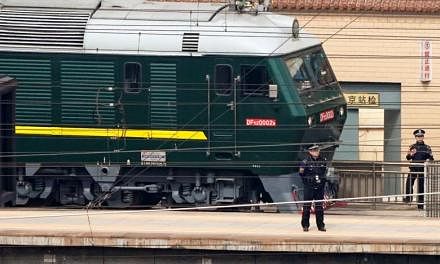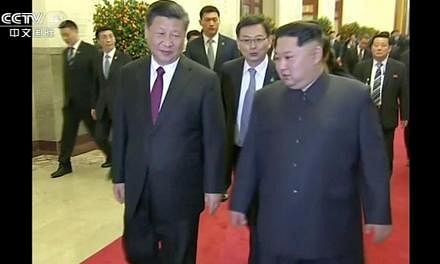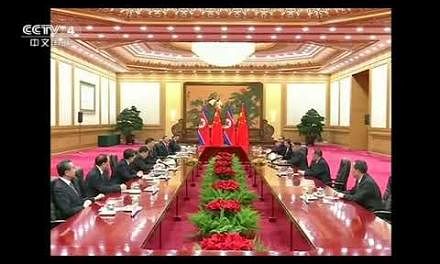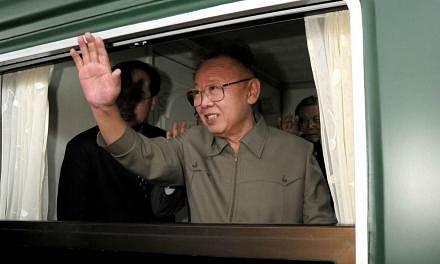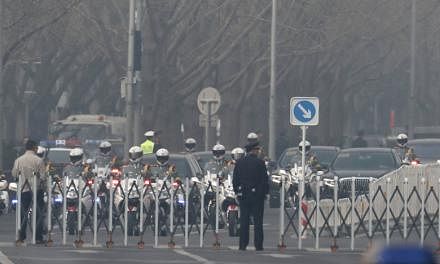BEIJING (NYTIMES) - A flurry of activity and speculation surrounding Beijing's diplomatic quarter on Tuesday accompanied what officials described as an unusual, and highly secretive, visit by North Korea's young leader, Kim Jong Un.
The prospect of a high-level visit from North Korea - including a meeting with China's leader, Xi Jinping - raised questions about what Kim hopes to accomplish with this latest, unexpected burst of diplomacy after years of provocative threats punctuated by nuclear and ballistic missile tests.
A Debut as an International Statesman
Kim, while educated in Switzerland, had never previously travelled abroad since becoming North Korea's leader in 2011. Nor has he met another head of state.
A visit to Beijing could capitalise on the relative success of North Korea's diplomacy around the Winter Olympics in Pyeongchang, South Korea, last month.
A delegation led by Kim's sister, Kim Yo Jong, and the North's nominal head of state, Kim Yong Nam, put on a charm offensive at the games that led to direct talks with the South Koreans and the extraordinary offer to meet directly with President Donald Trump.
With his power at home secure and the country's nuclear program (perhaps) completed, Kim appears to have the confidence to emerge as a recognised, if not yet respected player on the international scene, a crowning achievement for an ambitious young leader.
Befriending a Fading Ally
China has long been North Korea's ally and patron, a lifeline keeping its struggling economy afloat. Relations between the two, though, have become increasingly strained, and Kim's government needs Beijing's help in emerging from its international isolation.
China, evidently frustrated by the provocative behaviour of its junior partner, has joined the United States and others in tightening sanctions, imposed in response to the North's nuclear and missile tests. Kim had yet to meet his Chinese counterpart, and as he heads into direct talks with the United States and South Korea, he could use all the diplomatic support he can get.
At a minimum, Kim cannot afford to deliver a diplomatic snub to an increasingly assertive and confident Xi by bypassing him during the coming talks with Seoul and Washington.
Making Beijing a Player Again
China, which initiated the visit, had been left on the sidelines in the recent diplomatic breakthroughs.
If talks progress, Chinese officials would certainly want to reclaim a central role in the diplomatic manoeuvring to protect the country's own strategic interests on the Korean Peninsula.
"China worries about being bypassed by North Korea and Trump," said Shen Zhihua, a prominent historian in China. "China fears some collusion and fears its interests being disregarded."
Playing World Powers Against Each Other
With increasing signs that the sanctions have begun to hurt in North Korea, Kim may have realised that he cannot survive a sustained economic squeeze.
A high-profile diplomatic foray - coupled with a suspension of provocative statements and new weapons tests - should at a minimum avoid new sanctions and buy time for the economy.
Kim could also seek an easing of sanctions as a concession for continuing talks. China and Russia, as previous negotiations have shown, may be less willing than the United States to punish the North if it commits to diplomacy.
"He's playing one superpower against another," said Xia Yafeng, a historian at Long Island University.
Strengthening His Grip at Home
One of the first things Kim promised to his people when he took power was not to force them to "tighten their belts again". Now that he claims he has nuclear missiles capable of hitting their country's arch-enemy, the United States, he needs to focus on rebuilding the economy, and for that he needs the help of China and its vast market.
"To the North Koreans, improving ties with South Korea is important, but more important and urgent is improving ties with China," said Cheong Seong-chang, a senior analyst at the Sejong Institute, a South Korean research organisation.

